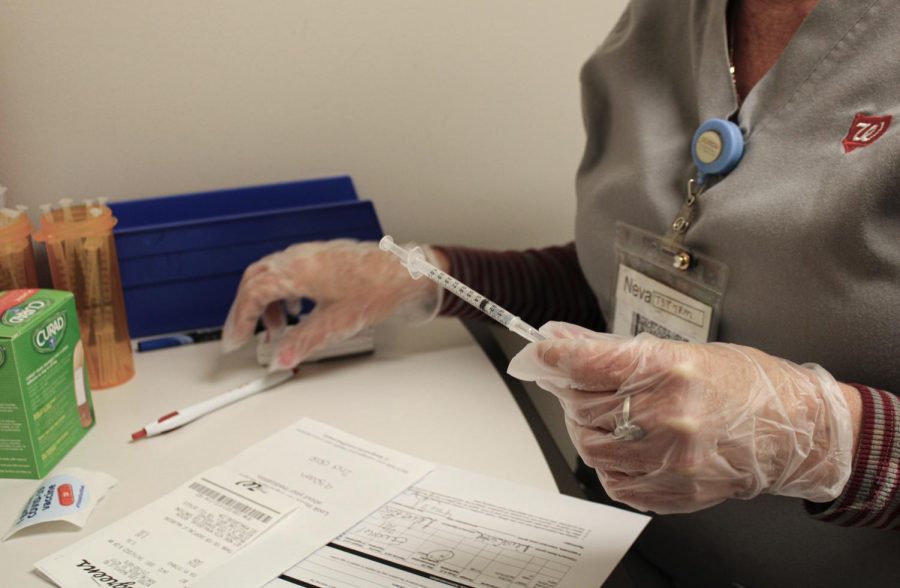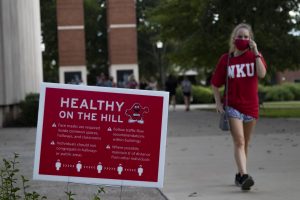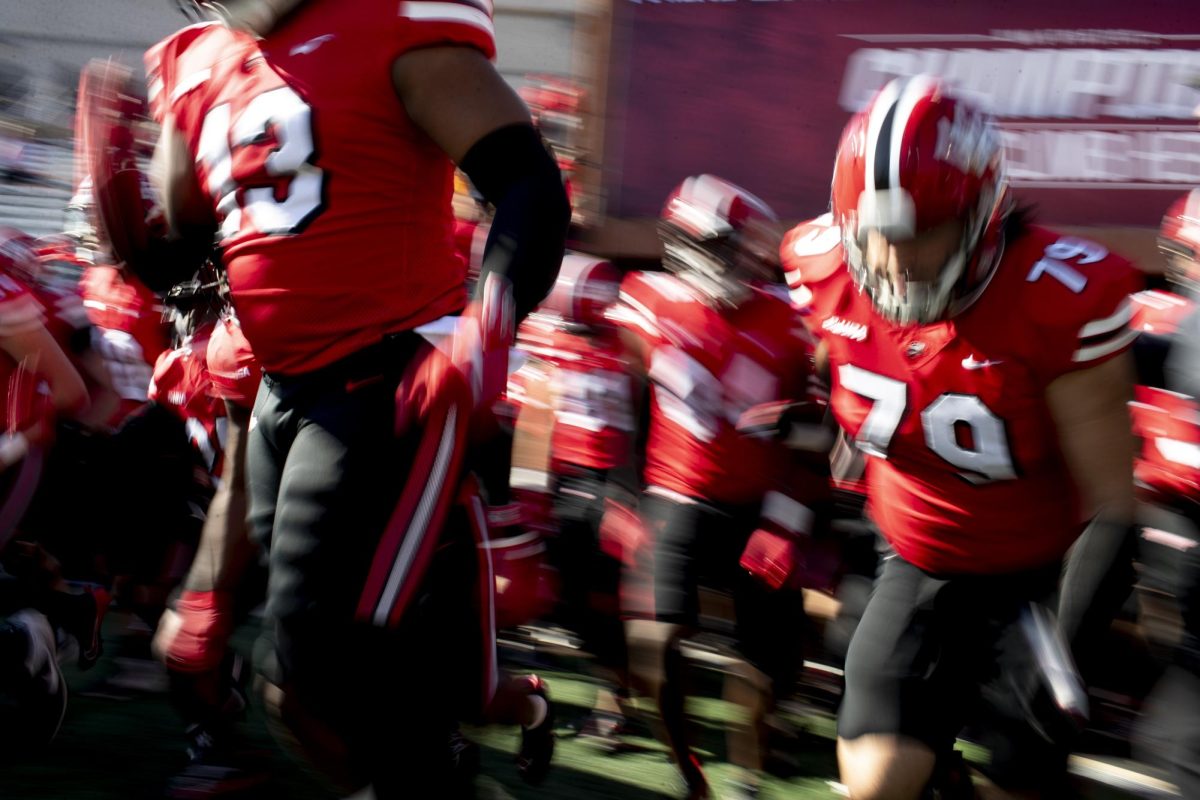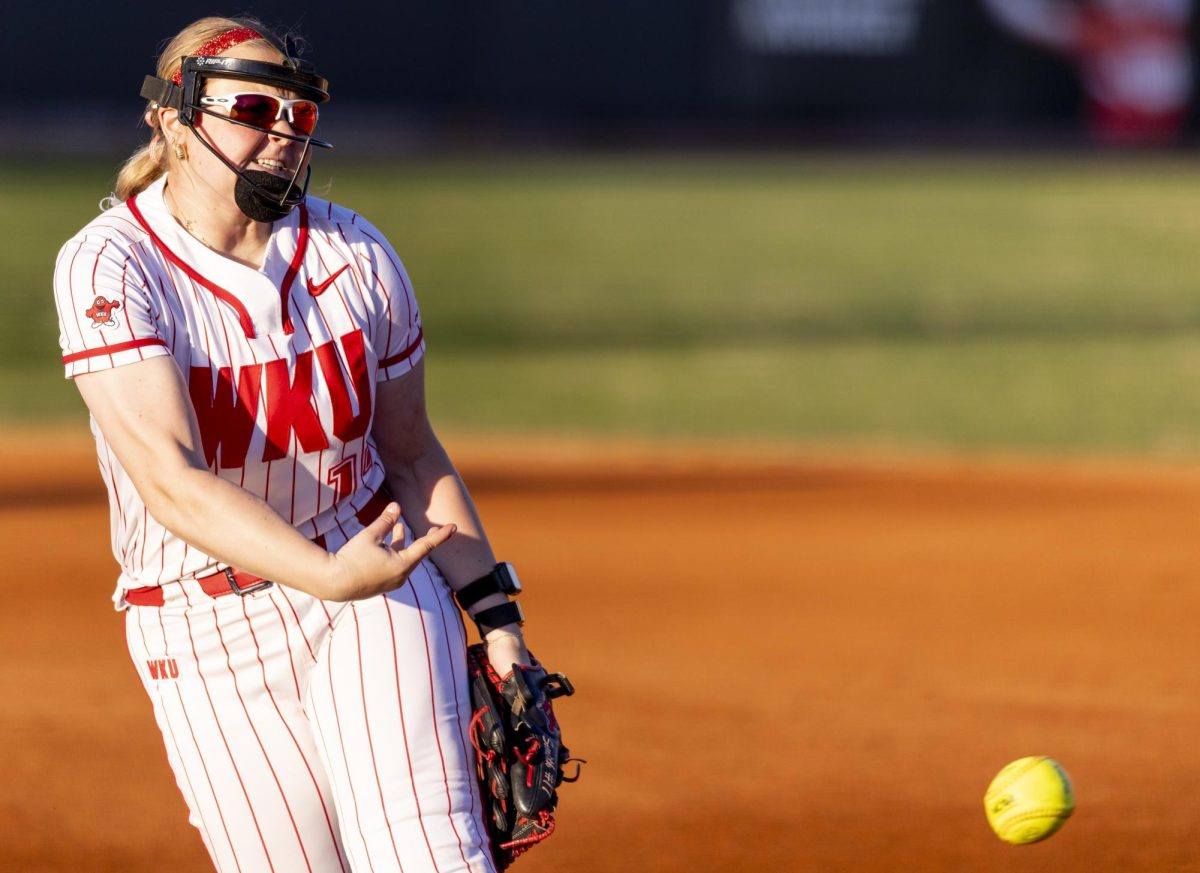New COVID-19 variant may change university guidelines
Jace Lux, WKU’s director of media relations and university spokesperson, explained that the university looks both to the CDC and its in-state peers to set COVID-19 policies.
July 19, 2021
Editor’s Note: This story has been updated with more clarification about WKU COVID-19 guidelines.
While the university prepares for the fall semester, WKU administration is facing new possible challenges with a rise in delta variant of COVID-19 cases, while also preparing for a return to normal on campus.
After months of declining numbers in the state, cases have been on the rise for three weeks. The delta variant of COVID-19 infected 26 people in Kentucky last week.
During today’s press briefing, Governor Andy Beshear recommended that unvaccinated people should wear masks indoors, people with pre-existing conditions and at higher risk of getting COVID-19 should wear masks even if vaccinated, vaccinated people whose work lends them to “significant public exposure” like the hospitality or restaurant industry, should consider wearing masks. He suggested that anyone who is eligible should consider getting vaccinated.
If numbers continue to rise, there may be new university guidelines, according to Jace Lux, director of media relations. “WKU is closely monitoring guidance from the state of Kentucky and The Barren River District Health Department regarding any COVID variants,” Jace Lux, director of media relations said. “As plans for the fall semester are solidified, the university will communicate those with the campus community. WKU remains committed to providing an in person experience this fall.”
Last week, Susan Howarth, vice president of strategy, finance and operations sent an email including new guidelines for WKU employees.
Employees are now expected to use their accumulated sick leave for COVID-19 related illnesses. COVID-19 cases are still to be reported to the WKU COVID-19 assistance hotline within four hours.
WKU employees are encouraged, but not required to get vaccinated and can be excused from work for up to four hours to obtain the vaccination.
In the email, Haworth said to refer to the guidelines announced in June as employees and students prepare for the fall semester.
For anyone who tests positive, isolation will take 10 days from the start of symptoms or the date of the positive test, whichever is earliest. Originally, isolation was 14 days to flatten the curve of COVID-19.
Anyone who comes into close contact with someone with COVID-19 must quarantine for 10 days. They will be released from quarantine after the 10th day without being tested as long as they are asymptomatic; the person can be released after the seventh day after receiving a negative test result as long as the test occurs on the fifth day or later.
A vaccinated person will need to present documentation to the university of their vaccination to avoid quarantine.
Digital News Editor Debra Murray can be reached at debra.murray940@topper.wku.edu. Follow her on Twitter @debramurrayy

















